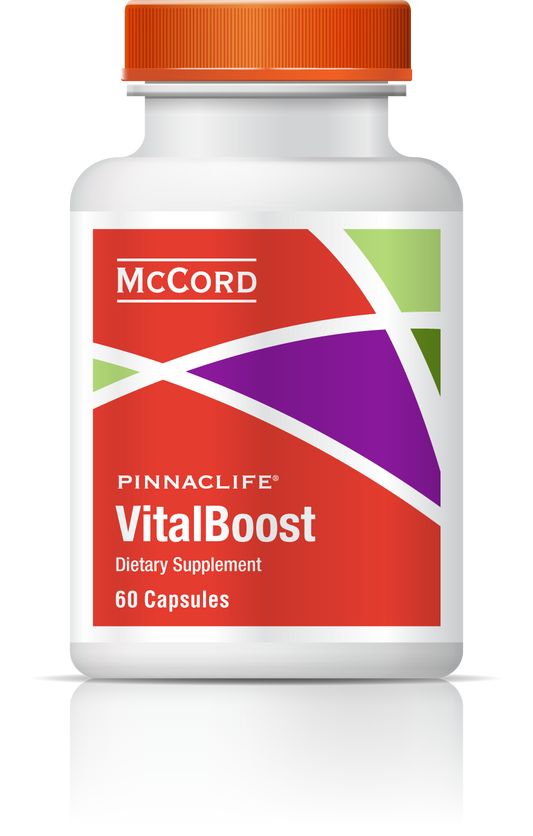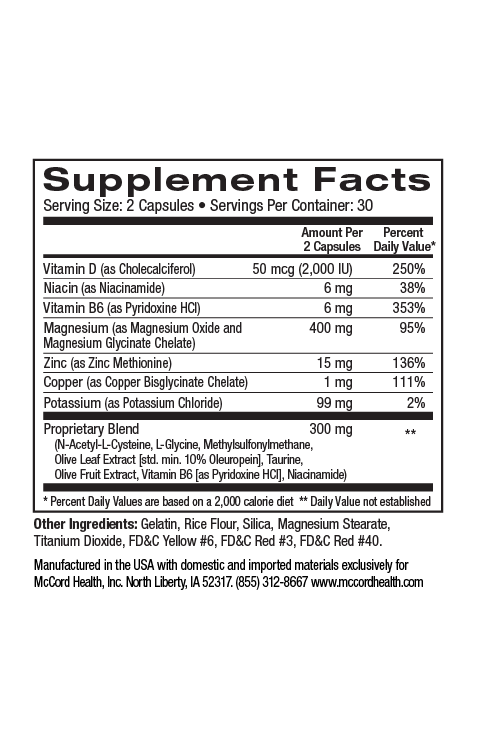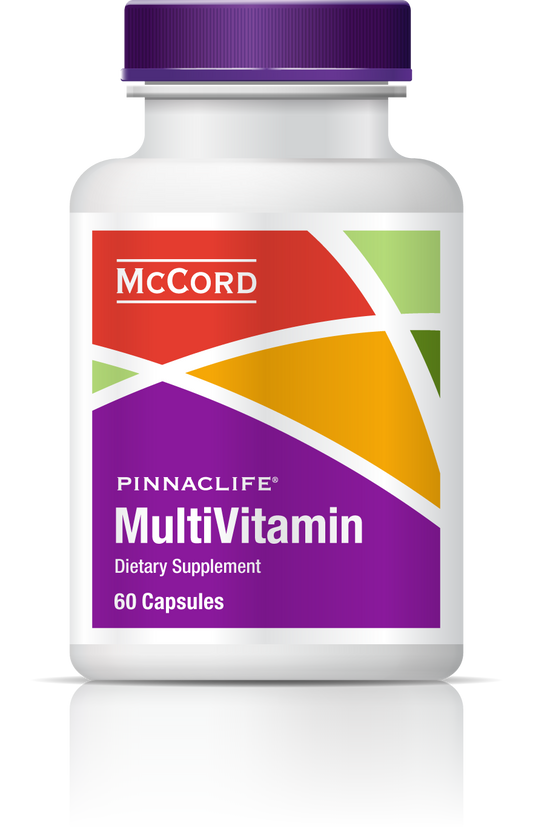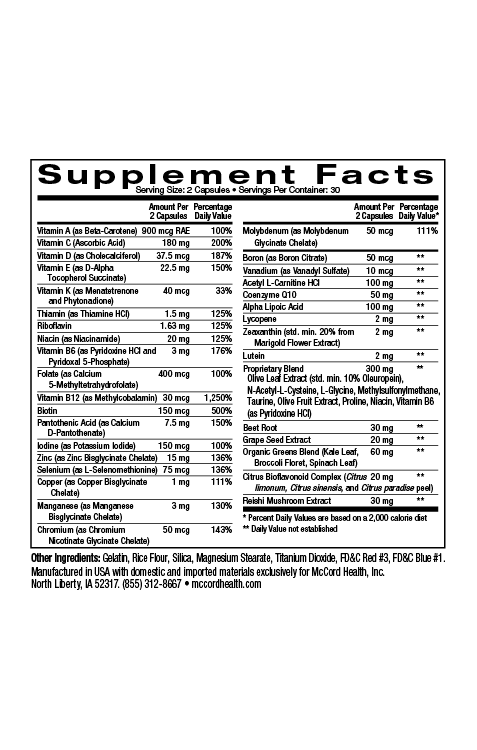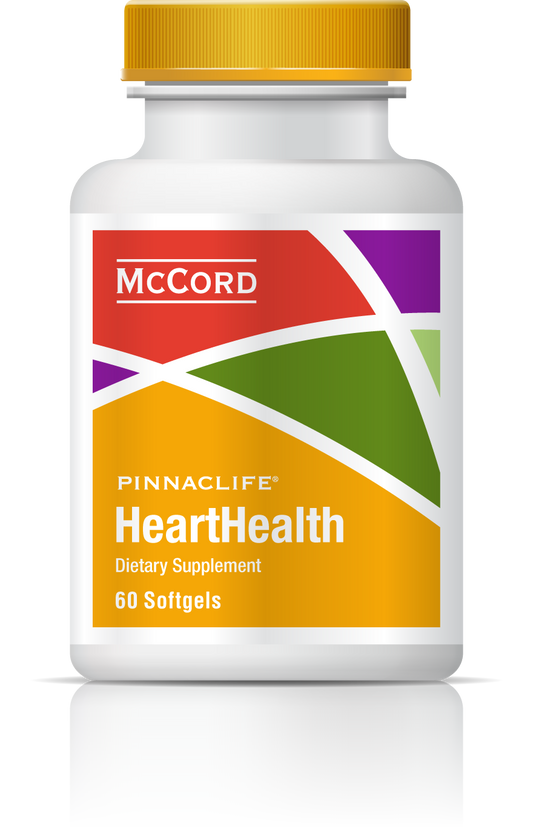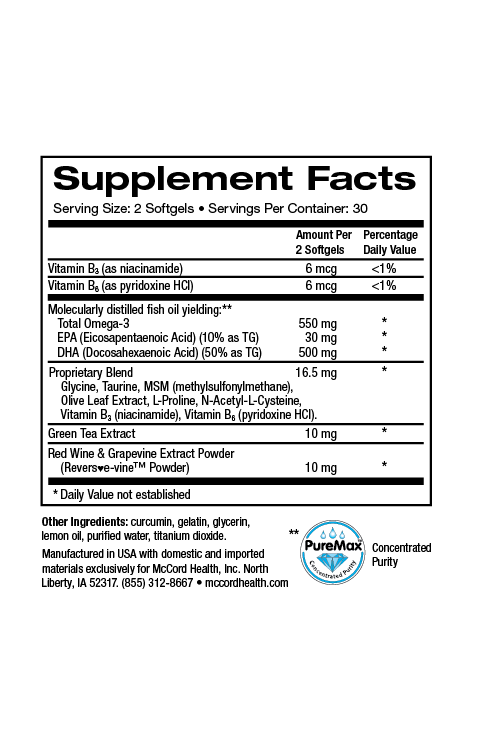The complexity of the gut microbiome (community of microorganisms) has been estimated to be greater than that of the human brain. A healthy gut microbiome is critical for the health of the brain and mind. High fiber diets can improve mental health and decrease depression. Proprietary Blend found in Pinnaclife® DigestiveHealth includes ingredients that can pass through the blood brain barrier to increase brain health. Western diets typically include highly processed food associated with increased inflammation that has been linked with depression and anxiety. Dietary fiber including the fiber found in DigestiveHealth provides energy for beneficial gut microbes that produce anti-inflammatory substances known as short chain fatty acids (SCFAs). Many small molecules found in Proprietary Blend and DigestiveHealth can also help decrease inflammation including two potent polyphenols from olives.
- Increasing evidence indicates a connection between the gut and the brain
- High fiber diets improve gut and mental health
- Diets that are low in fiber have been associated with inflammation
- Increased inflammation is associated with depression
- Dietary fiber is an important energy source for gut microbes
- Gut microbes produce metabolites that help regulate inflammation
- Proprietary Blend found in DigestiveHealth also includes ingredients that help decrease inflammation
The human gut typically contains over a kilogram of bacteria, similar to the weight of the human brain. In fact, about 10 to 100 trillion microorganisms reside in the gut, which is more than the number of cells in the human body, and it’s estimated that the genomic and biochemical complexity of the gut microbiome (community of microorganisms) is greater than that of the human brain1. Increasing evidence suggests that there is an important connection between the gut and the brain and that a healthy gut microbiome is not only required for gut health but is also critical for the health of the brain and mind1-3.
Recently, it has been shown that high fiber diets improve gut health as well as mental health3,4. Healthy diets that included fiber have led to improvements in the symptoms of depression and anxiety4,5. In fact, the Mediterranean diet that includes high amounts of fiber in the form of vegetables and fruit (including olives), has been shown to protect against depression and cognitive decline6,7. In order to have a healthy microbiome, it’s important to have a varied diet that includes fiber to promote microbial diversity. High levels of gut microbial diversity have been found in healthy individuals in contrast to less healthy individuals with conditions such as obesity8.
Pinnaclife® DigestiveHealth includes a soluble maltodextrin healthy fiber that is slowly fermented in the colon so that it doesn’t cause the gas and bloating commonly found with equivalent doses of rapidly fermenting fibers like inulin or fructooligosaccharides (FOS)9,10. DigestiveHealth also contains Proprietary Blend that includes the potent polyphenols hydroxytyrosol and oleuropein found in olives and extra virgin olive oil, a major part of the Mediterranean diet. Importantly, hydroxytyrosol has been shown to improve intestinal function and it’s small enough to pass through the blood brain barrier (BBB) to improve brain health11,12. Proprietary Blend also includes other nutrients that can cross the BBB such as N-acetylcysteine (NAC), methylsulfonylmethane (MSM) and taurine13-17.
Western diets that are typically low in fiber and high in processed foods have been associated with increased inflammation18. Higher levels of inflammation have been linked with many diseases and health conditions including arthritis, obesity, neurodegenerative diseases and depression19-22. Importantly, hydroxytyrosol and oleuropein have potent anti-inflammatory activities that have been associated with brain health12. Along with these olive polyphenols, Proprietary Blend includes other important ingredients with anti-inflammatory activities like MSM, NAC, and taurine23-27.
Dietary fiber is an important energy source for colon-residing bacteria. The anaerobic (require the absence of oxygen) bacteria in the colon metabolize complex carbohydrates28,29 such as healthy dietary fiber like the fiber found in DigestiveHealth and produce important metabolic products including short chain fatty acids (SCFAs). SCFAs such as butyrate play critical roles in regulating host metabolism, the immune system, and intestinal cell proliferation. SCFAs are found in high concentration in the colon where they are used as energy sources for intestinal cells, and they also act as signaling molecules that help regulate intestinal metabolism and inflammation. In fact, butyrate is anti-inflammatory30,31.
Gut microbes have also been shown to regulate important neurotransmitters such as serotonin. In fact, synthesis and release of neurotransmitters from bacteria has been reported including the synthesis of dopamine, acetylcholine, and gamma-aminobutyric acid (GABA). The effect of these neurotransmitters is thought to be indirect (by acting on the enteric nervous system); however, SCFAs such as butyrate produced by beneficial bacteria in response to fiber are capable of crossing the BBB and improving brain health1,3,32.
In fact, butyrate has had a substantially beneficial effect on brain disorders ranging from neurodegenerative diseases to psychological disorders. Butyrate can act epigenetically (affecting gene expression without changing the genetic code) and is a histone deacetylase (HDAC) inhibitor. HDAC inhibitors have been shown to promote prosurvival, proregenerative, and proplasticity gene expression in the brain3. Butyrate is also the more favored energy source for bacteria in the colon and is produced preferentially in response to resistant maltodextrin fiber33 found in DigestiveHealth.
Providing your gut with optimal nutrition including the fiber found in DigestiveHealth along with Proprietary Blend http://www.olivamine.com will keep your gut and mind healthy. DigestiveHealthhttps://pinnaclife.com/product/digestivehealth-prebiotic-supplement-for-gut-health/ withProprietary Blend includes impeccably sourced ingredients that have undergone rigorous scientific review to prove we renew, restore, and repair cells.
References
- Gastroenterol Clin N Am 2017; 46: 77-89.
- Nutrients 2019; 11: 1613, 1-40.
- Neurosci Lett 2016; 625: 56-63.
- Nutrition 2018; 5: 48-53.
- Nutr Neurosci 2018; doi: 10.1080/1028415x.2018.1493808.
- Mol Psychiatry 2019; 24: 965-986.
- Int Rev Neurobiol 2016; 131:325-346.
- J Clin Nutr Metab 2017; 1(2): 1000111, 1-12.
- Am J Clin Nutr 2006; 83(6): 1321-1330.
- J Nutr Sci Vitaminol 2013; 59(4): 352-357.
- J Nutr. Biochem 2016; 30: 108-115.
- Int J Mol Sci 2017; 18(11): 2230, 1-27.
- Adv Exp Med Biol 2013; 175: 19-27.
- Adv Exp Med Biol 2000; 483: 321-324.
- J Biomed Sci 2017; 24:71: 1-15.
- J Prev Alzhemers Dis 2017; 4(3):201-206.
- Nutrients 2017; 9(3): 290, 1-21.
- BMC Medicine 2013; 11: 200, 1-16.
- Curr Opin Rheumatol 2015; 27: 249-255.
- Curr Opin Rheumatol 2015; 27: 289-294.
- Mol Cells 2014; 37: 441-448.
- Free Radic Biol Med 2010; 49: 1603-1616.
- Planta Med 2011; 77: 1890-1897.
- Int J Mol Sci 2014; 15: 18508-18524.
- Biochem Biophys Res Comm 2104; 466: 1225-1230.
- Biol Pharm Bull 2009; 32: 651-656.
- Amino Acids 1996; 10: 59-71.
- Nutrients 2013; 5: 1417-1435.
- Microbiome 2019; 7(1): 91, 1-15.
- Cell Host Microbe 2018; 23: 705-715.
- J Clin Nutr Metab 2017; 1(2): 1000111, 1-12.
- Adv Nutr 2018; 9: 21-29.
- J Am Coll Nutr 2008; 27(2): 356-366.

